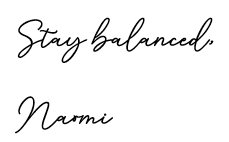When Self-Compassion Feels Impossible (But Is Exactly What We Need)

It can feel nearly impossible to show ourselves compassion when we’ve messed up—especially when someone else was hurt in the process.
The instinct for many of us is to turn inward with blame. We rake ourselves over the coals, convinced that shame will hold us accountable. That it will serve as a kind of emotional punishment we deserve, and a deterrent from ever making the same mistake again.
But here’s the hard truth: shame doesn’t keep us accountable. It keeps us small. Scared. Sad. Stuck.
Shame is immobilizing. It traps us in loops of self-judgment and regret, and it isolates us just when we need support and clarity the most. When we’re deep in shame, we’re more likely to hide, shut down, or disconnect—not reflect, repair, or move forward.
This doesn’t mean we shouldn’t feel remorse. It’s healthy and appropriate to acknowledge the impact of our actions, to feel guilt when we’ve hurt someone, and to want to make things right. But guilt and shame are not the same thing. Guilt says: “I made a mistake.” Shame says: “I am a mistake.”
That’s a painful belief to carry. And it’s simply not true.

We are human. Which means we will mess up—sometimes in epic ways. We’ll misread the situation, speak too harshly, act too quickly, or fall into patterns we’re trying to unlearn. And while that doesn’t excuse harm, it does make it… human.
What we often miss in these moments is the crucial role that self-compassion plays in repair—not just with others, but with ourselves.
Self-compassion isn’t about letting ourselves off the hook. It’s about creating enough internal safety and stability that we can take responsibility and stay connected to our own worth. It reminds us: you are not the harm. You are a person who made a painful mistake. And you want to do better.
That shift—however small—matters.
Because when we allow ourselves even a sliver of compassion, it feeds something essential in us. It’s what helps us feel whole again. Grounded. Brave enough to be honest with ourselves and others. Steady enough to offer a genuine apology, to examine what led to the harm, and to learn from it.
Growth isn’t born from shame. It’s born from reflection, connection, and a willingness to change. And none of that is possible when we’re buried under self-hatred.
If this sounds idealistic, or unrealistic, I get it. Especially if you grew up in environments where love was conditional, or where mistakes were met with punishment instead of understanding. For many, self-compassion isn’t intuitive—it’s a practice. One that needs time, repetition, and lots of unlearning.
But it’s worth it.
Because the truth is, we can’t punish ourselves into being better people. We can’t shame ourselves into accountability. And we can’t heal if we’re convinced we’re broken beyond repair.
So the next time you catch yourself in a spiral of self-blame, pause. Notice what’s happening. Ask: What am I believing about myself right now? Then gently, kindly, offer yourself something different. A breath. A reminder that you’re still worthy. A whisper of compassion.
You don’t have to feel it fully right away. Just make room for the possibility that there’s another way forward—one rooted not in shame, but in humanity.
That’s where growth begins.
